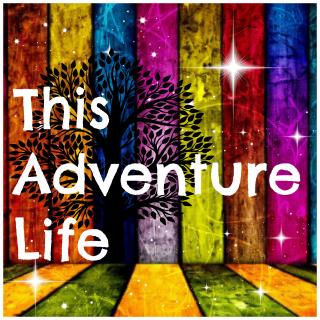Underwater Basketweaving
I read that in a post by Pioneer Woman a while back as the name for a subject that the overly ambitious homeschooling mom might engage her kids in. Imagine my shock and surprise when I learned that UB actually exists, along with a host of other seemingly odd courses: Philosophy via The Simpsons, Science via Harry Potter (we may actually use that one), and cultural studies by way of a Zombie Apocalypse… pretty snifty if you ask me – the other stuff that is, not necessarily the UB part (though I kinda wonder now if the pressure of the water helps keep the strips from being so fly-away when you’re weaving and am oddly tempted to try this in the pool now…) Anyway, PW’s post inspired me to examine my own motives and methods and I thought I would share.
Motive
My motives are multi-faceted. I think that most homeschooling parents can say that, but it seems that many? most? have a primary reason for homeschooling. I always get confused when talking about the ‘primary’ reason… we have the catalyst – what happened, what immediate need that was not being met that was the push I needed to make the decision to venture into homeschooling; but the reasons that we homeschool are much more broad than ‘a’ reason.
For one thing, I see homeschooling as an extension of our parenting style. Though we don’t follow every tenet of attachment parenting, that’s definitely the way we lean and I feel that this approach is responsible for the relationship that we have with our kids. As for educational goals, we want to have children who know how to find the information they need when they need it. To start with, we want them to have a solid foundation in math, science, history, language arts and a developed artistic voice. That means that at this age, we’re less delight-led and more eclectic with classical/CM leanings. As they get older, and master the basics, we’ll branch out more into their individual paths of study. We’re cultivating and fostering those interests now, but are more concerned with building a solid foundation right now. We also want to cultivate in them the desire to continue learning, even when there’s no paper due or grade attached to a project.
Obviously, homeschooling is not the only way to accomplish those things, but for our kids, we believe that homeschooling is the best way. Homeschooling allows me, as the primary teacher, to tailor my kids’ lessons to their individual needs; learning style, interests, abilities. It allows them to stay on one concept long enough to master it rather than ‘having’ to move on because we have to cover X number of pages/concepts this year.
Homeschooling also allows me the benefit of setting a schedule that works within the context of our family. We’re night owls and prefer to sleep later in the mornings. We can also incorporate community activities and area events that we’d normally be too tired for if we had to deal with school-school, and field trips on a whim. I’m sure there are additional benefits, but those are the ones that stand out as most important as write this.
Method
Though we look at education as a mutual responsibility, it works best for our family to have me in the role of primary educator. I’ve always been the primary caretaker, so this is again a natural extension of that role. It’s more traditional, and one of the few aspects of our lives that does fall into a more traditional/stereotypical ideal.
As a teacher, my methods are myriad. I am continuously looking for and learning about new ways to teach and new things that I think might inspire my kids. When I read about something I like, chances are that in the following weeks we’ll experiment with some form of that idea. If it works out, it might become a staple. If not, then I scrap it and try something new. This approach might not work for everyone, but it suits us quite well. It means that we’re not bogged down in any one thing or way for too long, but it also means that we’re not terribly consistent with any one style. We probably don’t garner the full benefit of Charlotte Mason style homeschooling, for example, but we incorporate plenty of her techniques into our homeschool and that works well for us. Besides, I honestly don’t think that any one method would suit us well enough to stick with long-term anyway.
One of the more inspiring things I’ve come across in recent months was a video by Escapist Magazine called Gamefying Education. We’re gamers, so naturally this caught my attention. It also made some darn good points about simple ideas that can change the way kids react and interact with education – things that even teachers in the classroom can implement. Since we’re not trapped by the a school administration’s policies and procedures, you’d think that such ideas come naturally, and to an extent they do, but having it all spelled out in this way (and in relation to gaming) was very illuminating.
The three areas of change that the video talks about are scoring, autonomy and motivation to continue learning once the lesson is over. One of the thoughts that struck me most in scoring was the notion that people go into a graded task with the thought that they have 100 points and that every mistake chips away at that. However, in gaming, you always start at zero and accumulate experience points as you go. You still can end up with the same number of points (though who wouldn’t choose a max of 100XP over a max of 10XP??), you just count up instead of down. Simple, but revolutionary.
The other two points, autonomy (freedom to choose their own direction) and motivation to continue learning, are less of a novel concept out of the classroom. I think that most homeschooling families tend to do so with and eye towards nurturing their kids’ interests and facilitating opportunities for their kids to expand them. But I really like the idea of learning as a game. The large-scale project that was mentioned in the video is beyond me at this point, but I am going to continue thinking about it and bugging my fellow homeschoolers out there (You. Yeah, YOU. *nudge, nudge*) and see what we come up with.
I did find Integer Jim’s math game, ‘Quest for the Golden Calculator‘ and am trying to convince my homeschool group that we should do this as a group activity, but so far they seem pretty unenthusiastic about the idea. I also found this website with game resources – in particular is a Jeopardy style game-creator that’s pretty awesome. That’s not exactly the large-scale game that the video was talking about, but it’s a pretty good start, I think. In any case, I look forward to brainstorming more on the game idea and hearing what you guys come up with, too.
Warmly,
~h
This entry was posted on June 7, 2011 by HT. It was filed under FAQ, Homeschooling Resources, Homeschooling Tips and Tricks, Lessons Learned, Never Stop Learning, Personal Growth, Rambling Thoughts and was tagged with gamefying education, homeschooling, methods, secular homeschooling.












Love it? Hate it? Let me know! Leave a comment: